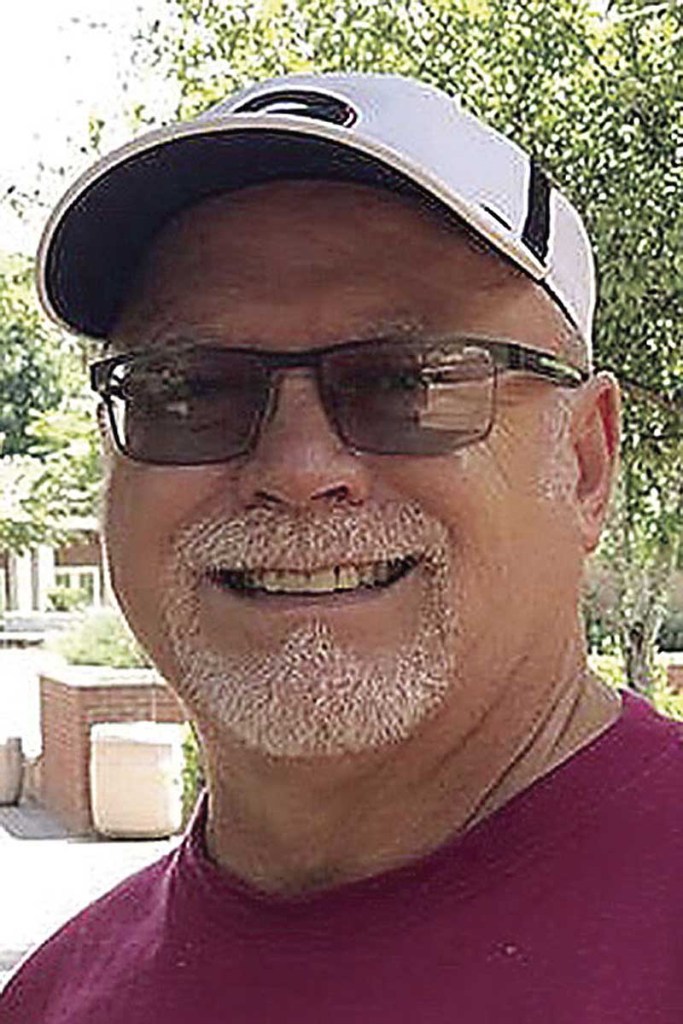EDDIE SEAGLE: Practice water stewardship
Published 8:51 pm Saturday, February 16, 2019

- Eddie Seagle is a Sustainability Associate, Golf Environment Organization (Scotland), Agronomist and Horticulturalist, CSI: Seagle (Consulting Services International), Professor Emeritus and Honorary Alumnus (Abraham Baldwin Agricultural College), Distinguished Professor for Teaching and Learning (University System of Georgia) and Short Term Missionary (Heritage Church, Moultrie). Direct inquiries to csi_seagle@yahoo.com.
“Human nature is like water. It takes the shape of its container.” Wallace Stevens. “My fake plants died because I did not pretend to water them.” Mitch Hedberg. “Water is life, and clean water means health.” Audrey Hepburn.
The temps are getting more spring-like with each passing day as February moves right along. Lots of early budding and blooming are evident in many of our early flowering plants (ie. saucer or Japanese magnolias). Spring is coming soon, but don’t think winter is over just yet. Easter is in late April this year, so there is still some cold weather left to fathom.
As we continue to think about spring landscaping, we want to definitely make the right decisions. Keep in mind that water is one of our most valuable resources and we should be planning our landscapes for improved water conservation and limited use.
Water is a priceless resource and the supply lessens day by day. In order to preserve water for our future generations and practice good water stewardship, we must sustain and conserve. The earth’s supply of water is finite! What we have now is the most that there will ever be, but our global population and developments continue to grow placing much concern on available water resources, now and in the future.
For many generations, the distribution of our water resources dictated where people would live, manufacturing would happen, and pleasurable recreation would occur. Because of our reckless use of this precious resource, we are now faced with issues on conservation, sustainability and restrictions like no other generation before us.
As long as we have homes, parks and facilities, we will landscape and grass them. Let us plan ahead and proceed in a manner conducive to more effective conservation and sustainability efforts. Any effort to reduce the demand for this precious resource must be labeled as beneficial and realistic. One such strategy is called xeriscaping or water-wise landscaping which can be very effective and help to conserve our water situations.
For many years we have applied more and more horticultural and agronomic concepts to our landscapes and allowed the ecological aspects to take a back seat. This resulted in the use of many exotic plants that required high maintenance and much water. Now, it is certainly of the essence that we pay more attention to native plants and sustainability practices.
Our landscapes receive water from two primary sources, naturally from rainfall and supplementary from irrigation. Understanding that water is a landscape’s lifeblood, it is important to ensure water stays where it belongs thus minimizing runoff and off-target applications. There are many water-smart practices to assist with proper water stewardship.
Xeriscaping, with emphasis on the use of native and sustainable plants, offers our country the opportunity to restore the regional distinctiveness throughout that has been de-emphasized in modern society. By combining plants with similar watering needs, matching them with local climates, and integrating them with construction materials and native design themes, landscape designers will have the opportunity to begin a new era in restoration of our diverse national and local landscapes.
The National Xeriscape Council developed principles that have come to serve as a guide in the development and maintenance of landscapes which will assist everyone in using water wisely (conserving) and not wastefully (reckless abandonment). Such principles include proper planning and design, developing watering zones called hydro-zones from areas of low water usage to higher usage areas, conducting proper soil analysis to determine what is needed to promote deep rooting and improved plant health.
Also, selecting appropriate plants through suitability and adaptability to the site, defining practical turf areas limited in size to minimize energy usage and improve curb appeal, concentrating on effective irrigation systems that provide uniformity (coverage) and efficiency (minimal waste and loss), and selecting mulches that complement the health of the plant and curb appeal.
And, choosing the appropriate maintenance practices that support water conservation. Such practices include blowing or sweeping sidewalks rather than hosing them which will save water, using anti-transpirants on plants help conserve moisture, regular mowing will limit the height of the turf and increase density which will conserve moisture, keeping your plants pest-free and healthy, and selecting pest-tolerant plants (insect and disease tolerance) which will support healthier plants.
To reduce runoff from heavy rains, develop rain gardens (primarily native plants) to help absorb the water, use cisterns to harvest rains from roofs to supplement irrigation systems, and use mulch in bed areas to conserve moisture and help absorb rain water. Also, lawn aeration helps to increase infiltration, porous paving systems in parking lots, drives and walkways help with infiltration and minimizing runoff, and green roof gardens absorb rainwater and reduce runoff. And add drip irrigation systems to conserve moisture, replace irrigation clocks with smart controllers to efficiently reduce water use, and audit your landscape and irrigation system to identify zones that need less water as plants mature.
As you plan your landscapes this season, always keep xeriscaping principles in mind. You will enjoy the benefits of your labor throughout the seasons to come through curb appeal, controlled water usage, improved conservation, and effective sustainability. Always think sustainability and native plants!
Remember to feed and water the songbirds, and give your pets the care they need. Be on the lookout for children playing and bicyclists riding along the streets and roadways throughout our communities. Pay attention to school buses and respect their stop signs and other signals as they transport our children to and from school and home. And remember to safely share the road with motorcycles. Drive alert and arrive alive. Don’t drive distracted or impaired, don’t text while driving, and “click-it” or ticket. Let’s keep everyone safe! Help the homeless every chance you get. As you receive blessings, always pay them forward and share with others.
Many thanks to all who read this column which is an effort to provide each reader with timely and useful information. It is a small contribution on my part in “paying it forward” to my readers. In keeping with this thought, many of you know that we are planning our annual mission trip to the Peru this summer and some of you might want to join us on this discipleship journey. We are currently developing our team and raising funds to help finance this mission trip. If you feel led to do so and would like to donate to this cause, please make a check payable to Heritage Church and mail to Eddie Seagle, Peru Mission Team, 108 Tallokas Circle, Moultrie, GA 31788. We would appreciate your prayers for a safe journey as well, and many thanks to each of you. Join us if you can!
“Submit to one another out of reverence for Christ.” Ephesians 5:21. “The tongue that brings healing is a tree of life, but a deceitful tongue crushes the spirit.” Proverbs 15:4. “Because Your love is better than life, my lips will glorify You.” Psalm 63:3.
Seagle is a Sustainability Associate, Golf Environment Organization (Scotland), Agronomist and Horticulturalist, CSI: Seagle (Consulting Services International), Professor Emeritus and Honorary Alumnus (Abraham Baldwin Agricultural College), Distinguished Professor for Teaching and Learning (University System of Georgia) and Short Term Missionary (Heritage Church, Moultrie). Direct inquiries to csi_seagle@yahoo.com.





